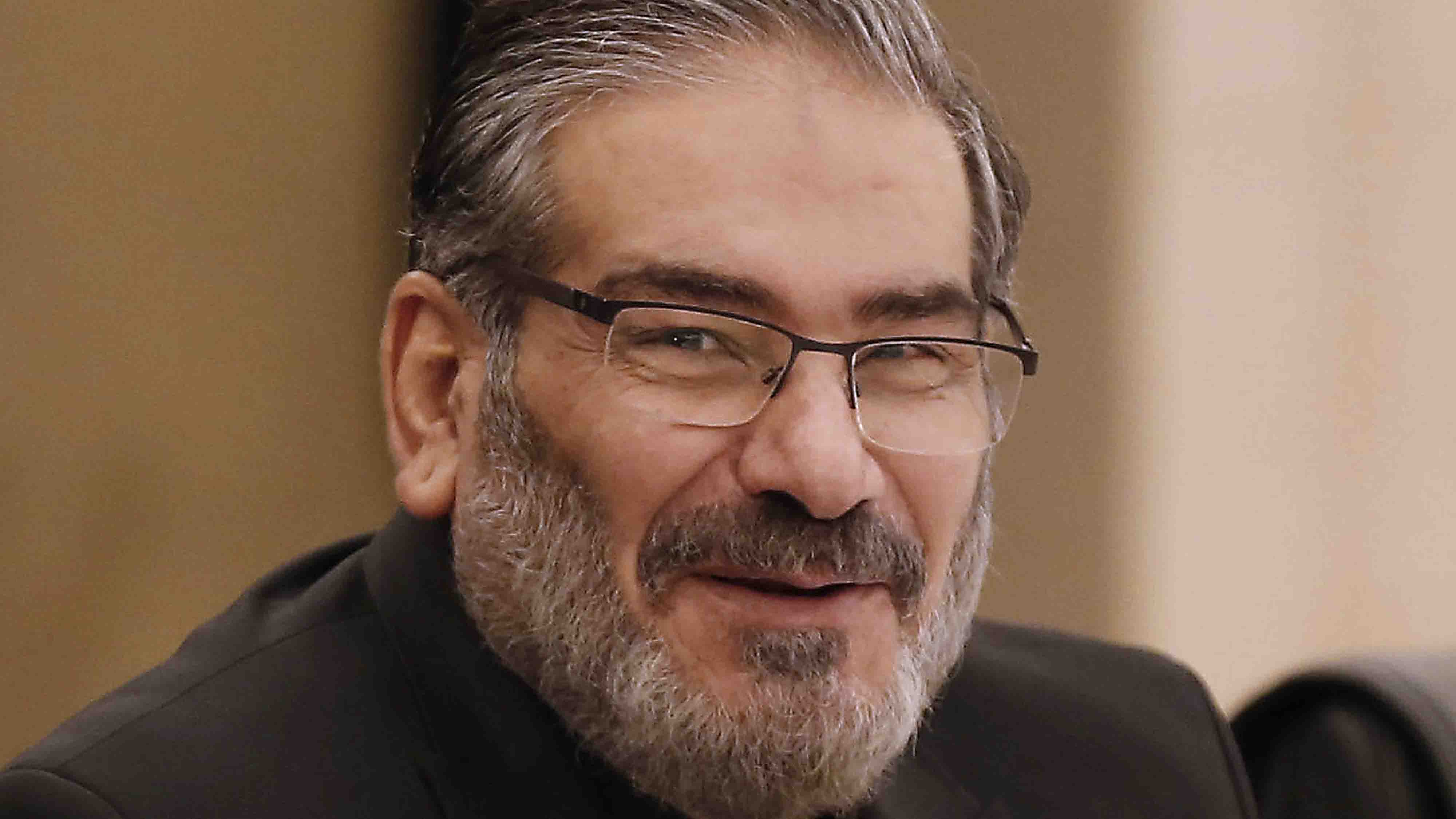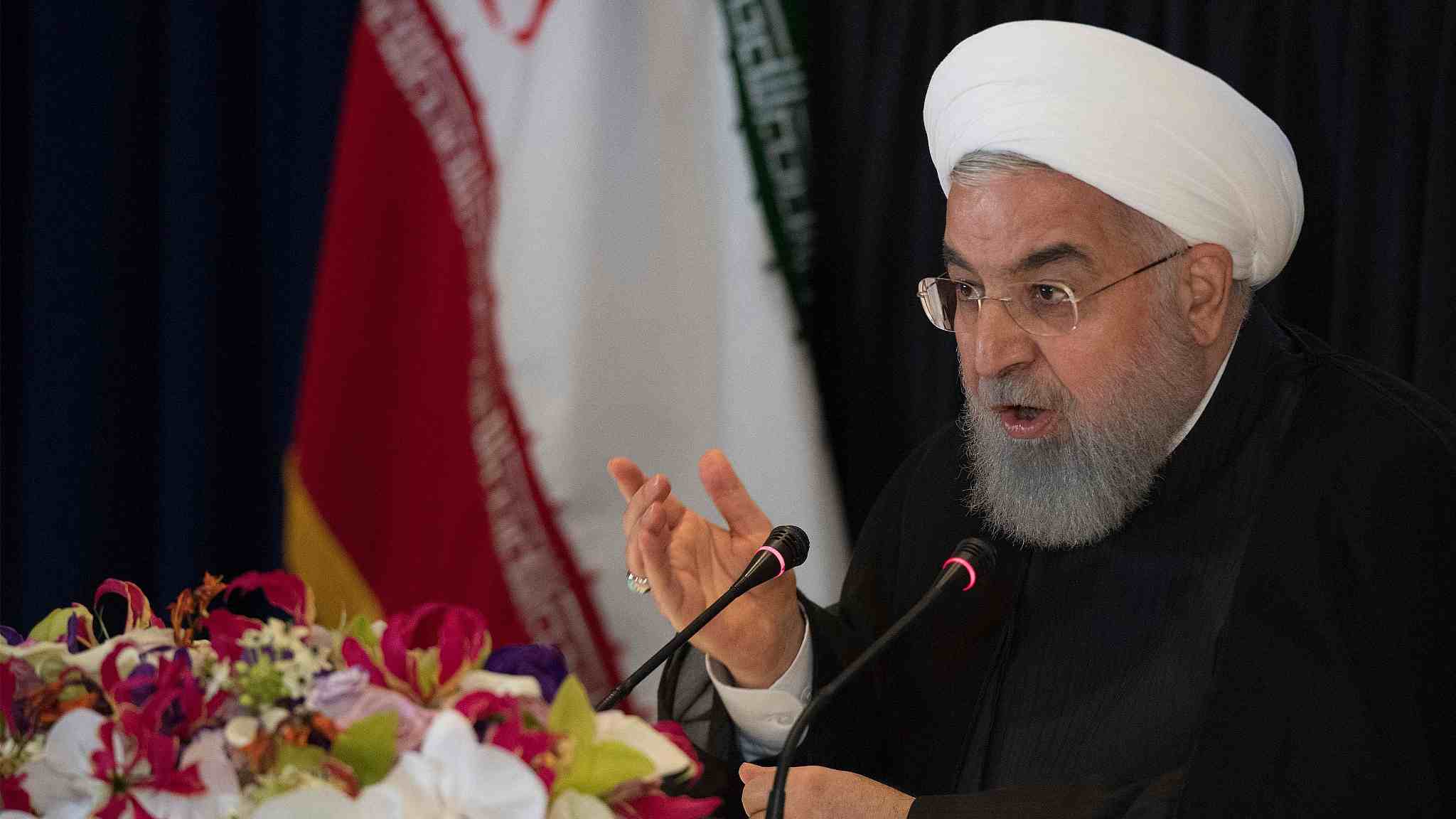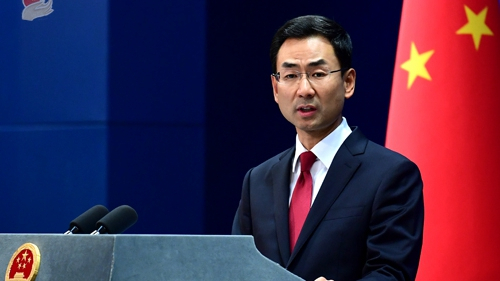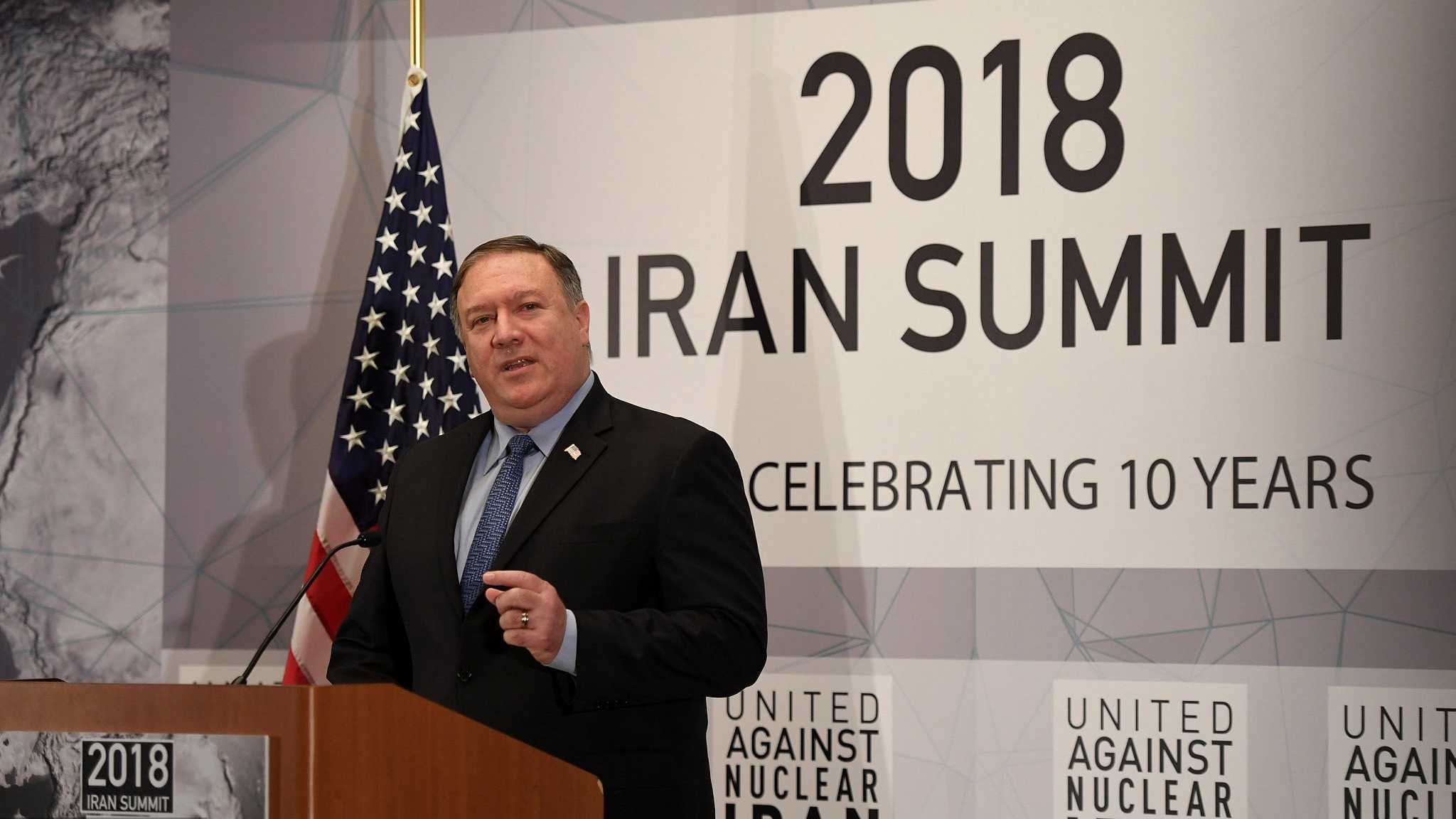
World
18:12, 27-Sep-2018
US isolated as China, Russia and EU moot special payments for Iran
Updated
17:28, 30-Sep-2018
By Abhishek G Bhaya
00:50

The US appears increasingly isolated on its stand on the Iran nuclear deal, with China, Russia and the European Union agreeing to set up a special payments system for trading with Tehran.
Iranian President Hassan Rouhani on Wednesday blamed US President Donald Trump's decision to unilaterally withdraw from the deal, formally known as the Joint Comprehensive Plan of Action (JCPOA), for Washington's isolation.
"At the UN General Assembly, we witnessed that the great majority of world leaders endorsed the JCPOA as a diplomatic achievement, which means that the US has been left isolated," Iran's Press TV quoted Rouhani as saying at a press conference on Wednesday.

Iranian President Hassan Rouhani speaks during a press conference in New York on September 26, 2018. /VCG Photo
Iranian President Hassan Rouhani speaks during a press conference in New York on September 26, 2018. /VCG Photo
The Iranian president asserted that "except for few countries, others regarded the measure as a political mistake," warning that the US should either rectify its mistake or continue being cornered for this wrong process.
He hoped that the US will learn from its mistake sooner or later and will return to the deal.
Rouhani's comments came after the foreign ministers of China, Russia, Germany, the UK and France, in a joint statement on Tuesday, agreed to "assist and reassure economic operators pursuing legitimate business with Iran" including its oil exports.
The joint move by the remaining stakeholders is a bid to protect the JCPOA while circumventing US sanctions reimposed on Iran in May. The five countries are signatories to the historic deal with Iran and remain committed to the agreement despite the US withdrawal earlier this year.
"The joint statement issued by the meeting highlighted all participants' determination to protect the freedom of their economic operators to pursue legitimate business with Iran," China's Foreign Ministry spokesperson Geng Shuang told a media briefing on Tuesday's foreign ministers' meeting.

China's Foreign Ministry spokesperson Geng Shuang addresses a press conference in Beijing on September 26, 2018. /Photo via China's Ministry of Foreign Affairs
China's Foreign Ministry spokesperson Geng Shuang addresses a press conference in Beijing on September 26, 2018. /Photo via China's Ministry of Foreign Affairs
"The meeting carried four messages. First, the meeting expressed deep regrets over the US withdrawal from the JCPOA. Second, it recognized Iran's compliance with its nuclear-related commitments made in the JCPOA. Third, it reaffirmed commitments to continue to preserve and implement the JCPOA. Fourth, it was devoted to properly addressing difficulties in maintaining normal economic and trade cooperation with Iran," he elaborated, echoing China's State Councilor and Foreign Minister Wang Yi's views.
"All participants reaffirmed that they will continue to take effective measures to secure payment channels with Iran, and the continuation of Iran's export of oil and gas condensate, petroleum products and petrochemicals. All the participants welcomed the proposals to establish a Special Purpose Vehicle (SPV) to facilitate payments related to Iran's exports and imports, including oil."
The EU's top diplomat Federica Mogherini said the financial tool of the SPV could be in place before November and would allow for legitimate financial transfers between European and Iranian companies.
The SPV would "allow European companies to trade with Iran in accordance with EU law and could be open to other partners in the world," she said.
Mogherini said the US is still the EU's strongest ally, but the bloc cannot allow other states to decide with whom European countries can do business.

US Secretary of State Mike Pompeo addresses a gathering in New York City on September 25, 2018. /VCG Photo
US Secretary of State Mike Pompeo addresses a gathering in New York City on September 25, 2018. /VCG Photo
Meanwhile, the US has expressed its outrage over the SPV plan.
US Secretary of State Mike Pompeo told a gathering in New York that he was "deeply disappointed" that the remaining countries in the nuclear deal plan set up a special payment system with Iran to bypass US sanctions.
He also condemned the plan as "one of the most counterproductive measures imaginable."
(Cover: Federica Mogherini, European Union's High Representative for Foreign Affairs and Security Policy, and Iran's Foreign Minister Mohammad Javad Zarif attend a ministerial meeting of Russia, China, United Kingdom, France, Germany and Iran held on the sidelines of the 73rd session of the UN General Assembly at the United Nations headquarters in New York on September 25, 2018. /VCG Photo]
11001km

SITEMAP
Copyright © 2018 CGTN. Beijing ICP prepared NO.16065310-3
Copyright © 2018 CGTN. Beijing ICP prepared NO.16065310-3